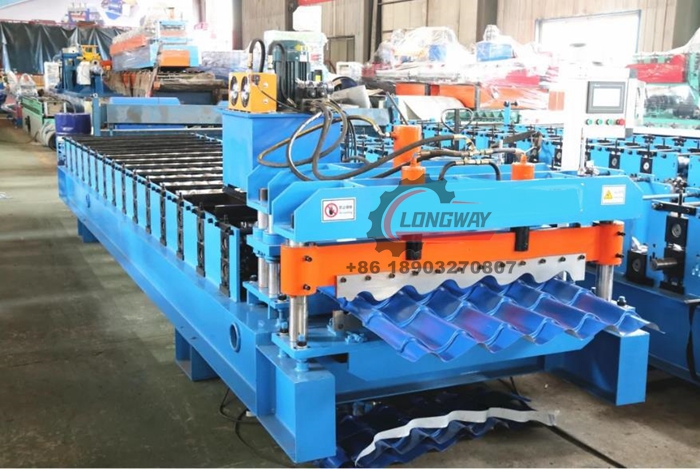Leading Manufacturer of Advanced Machines for Roof Production and Construction Solutions
The Evolution of Roof Manufacturing Machines A Comprehensive Overview
In the construction industry, the efficiency and quality of roofing materials play a pivotal role in determining the longevity and performance of structures. As such, the importance of advanced roof manufacturing machines cannot be overstated. The evolution of these machines has significantly transformed how roofing materials are produced, paving the way for innovative solutions that meet the demands of modern construction.
Historical Context
Traditionally, roofing manufacturing processes involved manual labor and rudimentary machinery. This not only led to inconsistencies in product quality but also resulted in longer production times. However, with technological advancements, the industry witnessed the rise of specialized roof manufacturing machines designed to streamline operations and enhance productivity. Today’s machines are equipped with sophisticated technology that allows for precision engineering, ensuring every piece meets stringent quality standards.
Types of Roof Manufacturing Machines
There are several types of roof manufacturing machines that cater to various roofing materials, including metal, shingles, tiles, and membranes.
1. Metal Roof Roll Forming Machines These machines are used to manufacture metal roofing sheets. They work by feeding metal coils into a roll former where the metal is shaped and cut to specified lengths. The precision of these machines enables the production of various profiles, ensuring that they fit perfectly on any design.
2. Shingle Production Machines For asphalt shingles, manufacturers use automated machines that can produce a high volume while maintaining quality. These machines mix asphalt with fiberglass and minerals before pressing the mixture into the desired shapes. The automated process ensures consistency in the thickness and weight of each shingle.
roof manufacturing machine manufacturer

3. Concrete and Clay Tile Machines These machines form tiles through a process of mixing raw materials, molding, and curing. The automation and advanced heating methods used in these machines allow for quicker production cycles without compromising the integrity of the tiles.
4. Roof Membrane Fabrication Machines These are critical for the production of waterproof roofing materials. They utilize extrusion processes to develop membranes that effectively resist moisture and UV damage.
Automation and Innovation
The incorporation of automation and smart technology in roof manufacturing machines has revolutionized the industry. Modern machines often come equipped with computer numerical control (CNC) systems, which enhance precision and reduce waste. Furthermore, with the advent of Industry 4.0, manufacturers are now integrating IoT (Internet of Things) technologies into their production lines. This allows for real-time monitoring, predictive maintenance, and improved resource management.
Environmental Considerations
In addition to improving efficiency, roof manufacturing machines are increasingly designed with sustainability in mind. Manufacturers are making strides in producing machines that can utilize recycled materials, reducing the carbon footprint associated with roof production. Furthermore, energy-efficient designs are gaining traction, allowing manufacturers to minimize energy consumption during production.
Conclusion
As the construction industry continues to evolve, the role of roof manufacturing machines becomes increasingly significant. With advancements in technology, manufacturers are poised to meet the diverse needs of builders and architects, ensuring that roofing materials are not only durable and aesthetically pleasing but also environmentally friendly. The future of roof manufacturing looks promising, with innovations continually emerging to redefine efficiency and productivity in this critical sector.
-
Corrugated iron roofing sheet making machine with CE, AutoNewsNov.17, 2025
-
3mm Steel C U Channel Roll Forming Machine, Heavy DutyNewsNov.17, 2025
-
Calamima Micro Ondulada corrugated roof sheet machine - CNCNewsNov.17, 2025
-
Metal Roofing Roll Former for Sale Companies - Fast, PreciseNewsNov.17, 2025
-
Drywall Steel L Angle Bar forming machine | Fast, PreciseNewsNov.17, 2025
-
Corrugated Iron Roofing Sheet Making Machine, Fast & DurableNewsNov.11, 2025
-
Corrugated Metal Roofing Machine | High-Speed, Precise, CENewsNov.11, 2025







